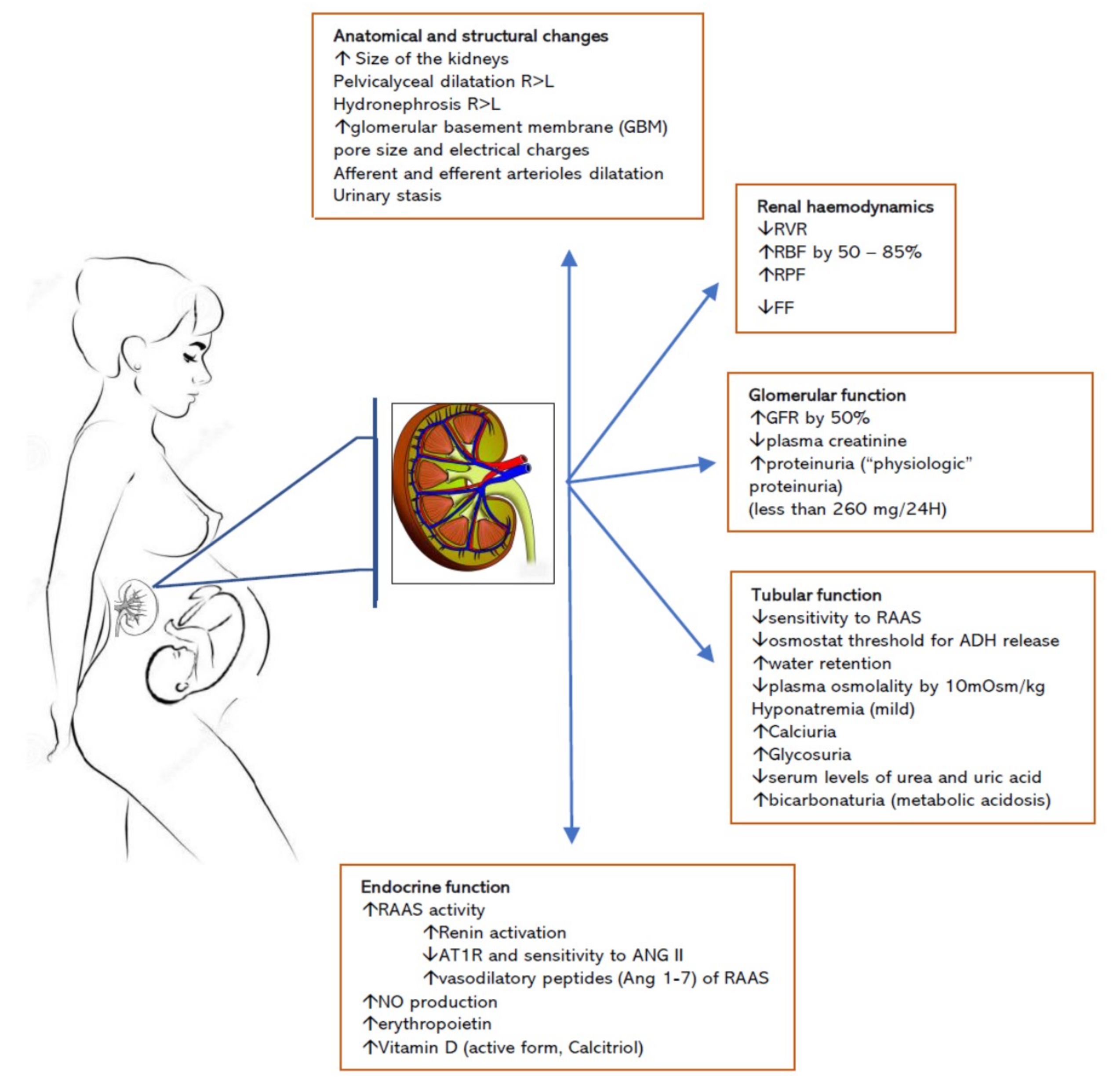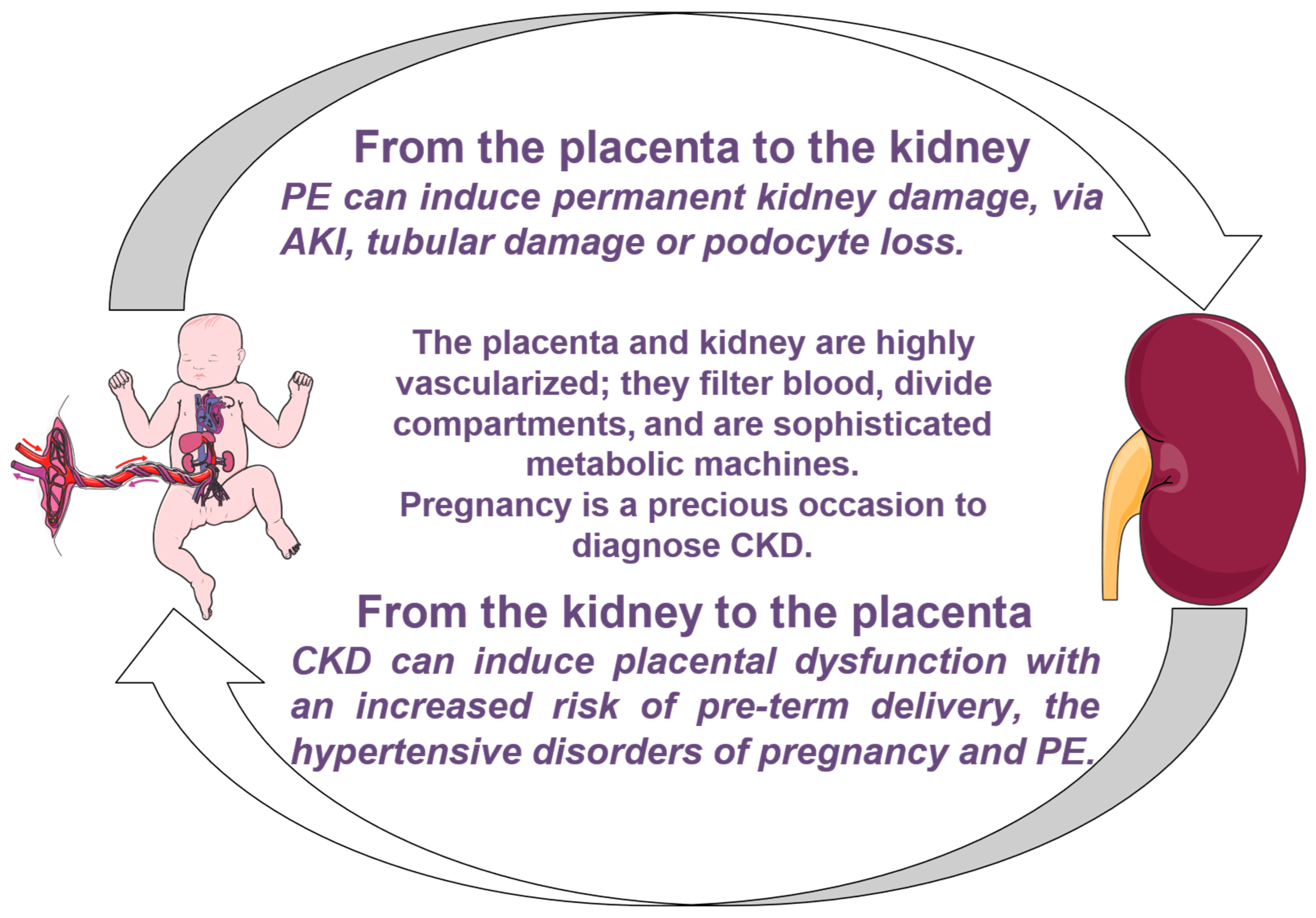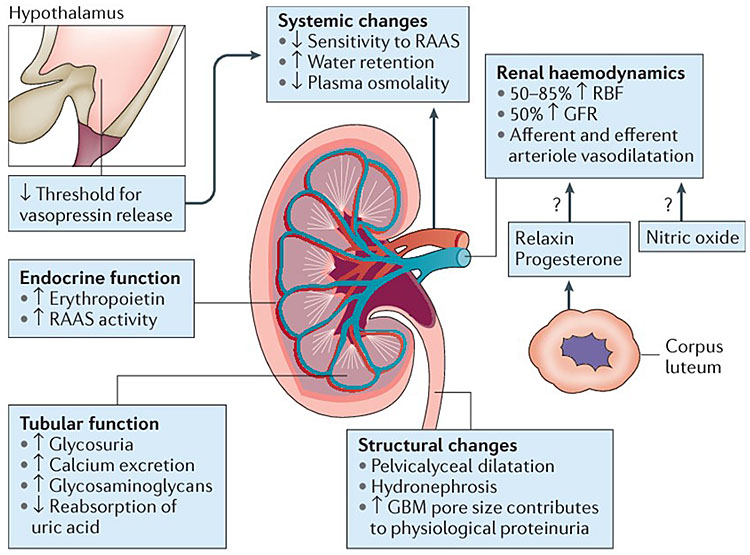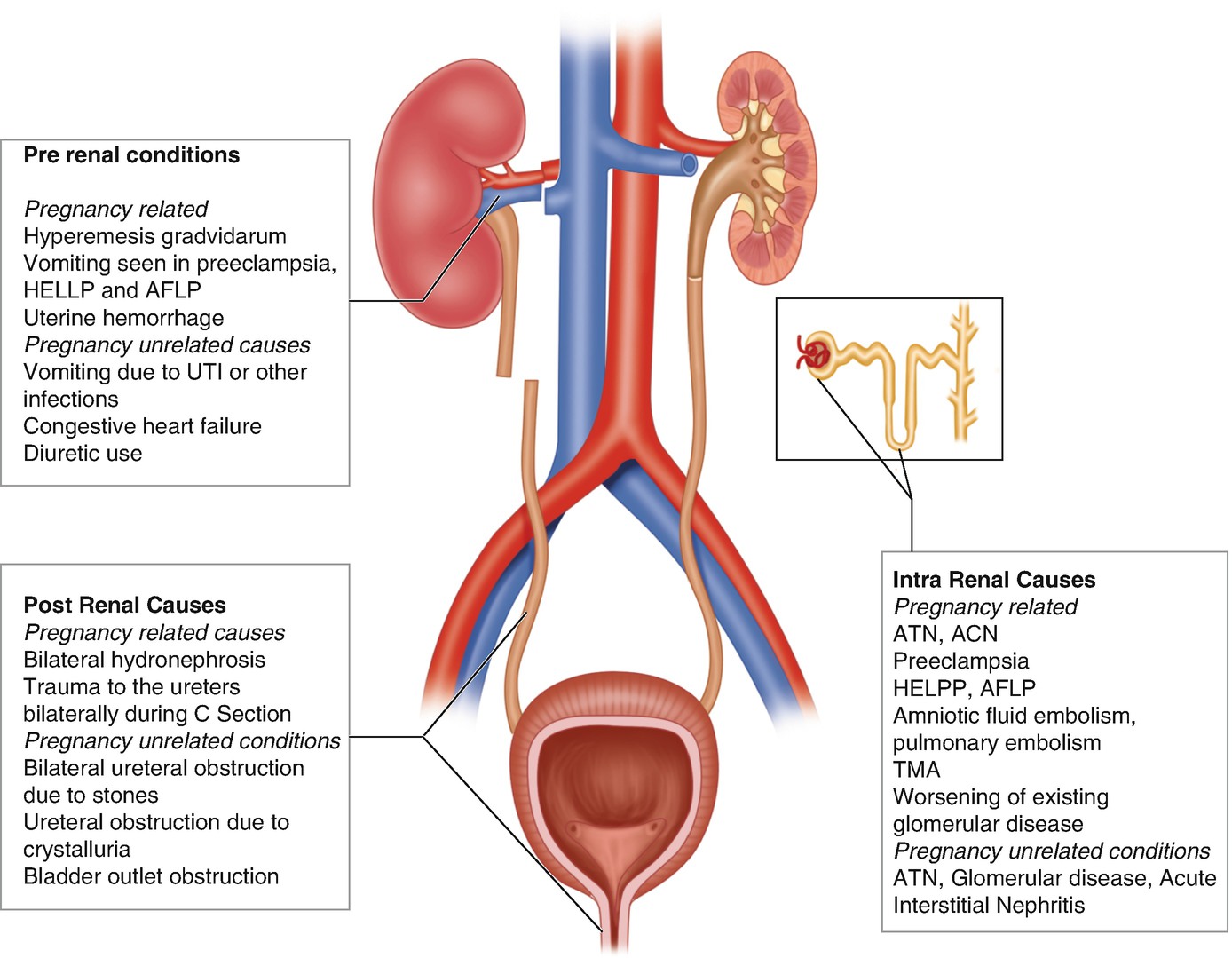Fluid In Kidneys During Pregnancy - In pregnancy, once hydronephrosis is found, it is usually monitored for stability or worsening severity with regular interval. Hormonal changes during pregnancy allow for increased blood flow to the kidneys and altered autoregulation such that glomerular filtration. While the baby is inside the womb, the urine produced by the baby's kidneys adds to the amount of amniotic fluid (fluid surrounding the. Maternal hydronephrosis in pregnancy often results as a physiological phenomenon due to the presence of the fetus. The kidneys are larger during pregnancy because of fluid retention, and physiologic hydronephrosis is common.
Maternal hydronephrosis in pregnancy often results as a physiological phenomenon due to the presence of the fetus. The kidneys are larger during pregnancy because of fluid retention, and physiologic hydronephrosis is common. While the baby is inside the womb, the urine produced by the baby's kidneys adds to the amount of amniotic fluid (fluid surrounding the. In pregnancy, once hydronephrosis is found, it is usually monitored for stability or worsening severity with regular interval. Hormonal changes during pregnancy allow for increased blood flow to the kidneys and altered autoregulation such that glomerular filtration.
In pregnancy, once hydronephrosis is found, it is usually monitored for stability or worsening severity with regular interval. The kidneys are larger during pregnancy because of fluid retention, and physiologic hydronephrosis is common. While the baby is inside the womb, the urine produced by the baby's kidneys adds to the amount of amniotic fluid (fluid surrounding the. Maternal hydronephrosis in pregnancy often results as a physiological phenomenon due to the presence of the fetus. Hormonal changes during pregnancy allow for increased blood flow to the kidneys and altered autoregulation such that glomerular filtration.
Kidneys during pregnancy adaptations & challenges
Maternal hydronephrosis in pregnancy often results as a physiological phenomenon due to the presence of the fetus. The kidneys are larger during pregnancy because of fluid retention, and physiologic hydronephrosis is common. Hormonal changes during pregnancy allow for increased blood flow to the kidneys and altered autoregulation such that glomerular filtration. In pregnancy, once hydronephrosis is found, it is usually.
Maternal Adaptations in Pregnancy TeachMePhysiology
Maternal hydronephrosis in pregnancy often results as a physiological phenomenon due to the presence of the fetus. Hormonal changes during pregnancy allow for increased blood flow to the kidneys and altered autoregulation such that glomerular filtration. The kidneys are larger during pregnancy because of fluid retention, and physiologic hydronephrosis is common. In pregnancy, once hydronephrosis is found, it is usually.
Renal Physiology In Pregnancy
Hormonal changes during pregnancy allow for increased blood flow to the kidneys and altered autoregulation such that glomerular filtration. The kidneys are larger during pregnancy because of fluid retention, and physiologic hydronephrosis is common. In pregnancy, once hydronephrosis is found, it is usually monitored for stability or worsening severity with regular interval. While the baby is inside the womb, the.
Fetal Kidney Function and Endocrine Function in the Fetus Embryologysite
While the baby is inside the womb, the urine produced by the baby's kidneys adds to the amount of amniotic fluid (fluid surrounding the. Hormonal changes during pregnancy allow for increased blood flow to the kidneys and altered autoregulation such that glomerular filtration. The kidneys are larger during pregnancy because of fluid retention, and physiologic hydronephrosis is common. Maternal hydronephrosis.
Chronic kidney disease in pregnancy The BMJ
Maternal hydronephrosis in pregnancy often results as a physiological phenomenon due to the presence of the fetus. Hormonal changes during pregnancy allow for increased blood flow to the kidneys and altered autoregulation such that glomerular filtration. While the baby is inside the womb, the urine produced by the baby's kidneys adds to the amount of amniotic fluid (fluid surrounding the..
JCM Free FullText The Changing Landscape of Acute Kidney Injury in
Hormonal changes during pregnancy allow for increased blood flow to the kidneys and altered autoregulation such that glomerular filtration. While the baby is inside the womb, the urine produced by the baby's kidneys adds to the amount of amniotic fluid (fluid surrounding the. In pregnancy, once hydronephrosis is found, it is usually monitored for stability or worsening severity with regular.
Renal physiology in pregnancy
The kidneys are larger during pregnancy because of fluid retention, and physiologic hydronephrosis is common. While the baby is inside the womb, the urine produced by the baby's kidneys adds to the amount of amniotic fluid (fluid surrounding the. Hormonal changes during pregnancy allow for increased blood flow to the kidneys and altered autoregulation such that glomerular filtration. Maternal hydronephrosis.
JCM Free FullText Pregnancy and Kidney Diseases Multidisciplinary
While the baby is inside the womb, the urine produced by the baby's kidneys adds to the amount of amniotic fluid (fluid surrounding the. The kidneys are larger during pregnancy because of fluid retention, and physiologic hydronephrosis is common. Hormonal changes during pregnancy allow for increased blood flow to the kidneys and altered autoregulation such that glomerular filtration. In pregnancy,.
Kidneys and Pregnancy Article GLOWM
Maternal hydronephrosis in pregnancy often results as a physiological phenomenon due to the presence of the fetus. Hormonal changes during pregnancy allow for increased blood flow to the kidneys and altered autoregulation such that glomerular filtration. In pregnancy, once hydronephrosis is found, it is usually monitored for stability or worsening severity with regular interval. While the baby is inside the.
Kidney Injury During Pregnancy Obgyn Key
Maternal hydronephrosis in pregnancy often results as a physiological phenomenon due to the presence of the fetus. The kidneys are larger during pregnancy because of fluid retention, and physiologic hydronephrosis is common. Hormonal changes during pregnancy allow for increased blood flow to the kidneys and altered autoregulation such that glomerular filtration. In pregnancy, once hydronephrosis is found, it is usually.
While The Baby Is Inside The Womb, The Urine Produced By The Baby's Kidneys Adds To The Amount Of Amniotic Fluid (Fluid Surrounding The.
Hormonal changes during pregnancy allow for increased blood flow to the kidneys and altered autoregulation such that glomerular filtration. The kidneys are larger during pregnancy because of fluid retention, and physiologic hydronephrosis is common. Maternal hydronephrosis in pregnancy often results as a physiological phenomenon due to the presence of the fetus. In pregnancy, once hydronephrosis is found, it is usually monitored for stability or worsening severity with regular interval.









